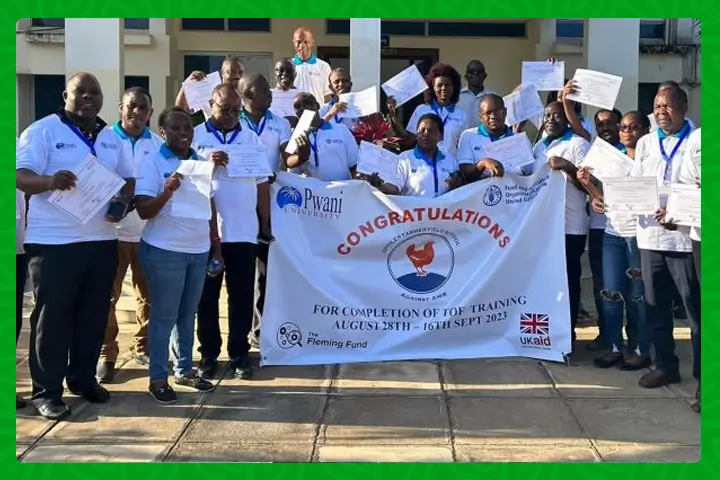
In a remarkable collaborative effort, the United Nations’ Food and Agriculture Organization (FAO), in partnership with Kenya’s esteemed Pwani University, is set to revolutionize broiler chicken rearing and bolster responsible antimicrobial use across six African nations. This groundbreaking endeavor, supported by the UK’s Fleming Fund, holds the key to mitigating the escalating global threat of Antimicrobial Resistance (AMR).
A Pioneering Approach to Combat AMR
AMR, a multifaceted global health crisis, is characterized by microorganisms developing resistance to antimicrobial drugs, impacting humans, animals, and the environment. The roots of this challenge extend far and wide, driven by drug overuse and inadequate infection control practices along the food chain. The stakeholders in the livestock value chain, spanning consumers, farmers, healthcare professionals, and policymakers, grapple with complex AMR decisions influenced by socio-cultural, historical, political, economic, and personal factors.
To tackle AMR comprehensively, innovative interventions are imperative. FAO, a pioneer in this domain, champions the Farmer Field School (FFS) method, dating back to the late 1980s, as a pivotal tool in the battle against AMR.
The Power of Farmer Field School (FFS)
The FFS approach champions adult-centered learning and knowledge exchange, fostering group problem-solving and collective wisdom. At demonstration farms, under the guidance of trained facilitators, farmers regularly convene to scrutinize their production ecosystems, unearth challenges, and experiment with alternative practices. This holistic approach empowers farmers with the tools they need to combat AMR effectively.
Expanding the Reach of FFS
The success of this ambitious initiative hinges on a well-coordinated FFS implementation across six Fleming Fund project countries: Ethiopia, Ghana, Kenya, Tanzania, Zambia, and Zimbabwe. FAO has taken the lead in this endeavor, embarking on an extensive training program. This program involves training 18 FFS Facilitators in the fundamentals of FFS, with a specific emphasis on broiler production over a span of three weeks. Furthermore, six Master FFS trainers from the same group will undergo an intensive eight-week training to equip them to train broiler FFS Facilitators within their respective counties.
Standardized Broiler FFS Curriculum
A critical aspect of this initiative is the development of a standardized Broiler FFS curriculum designed for use in the participating countries. The entire FFS journey will culminate in the implementation of a comprehensive broiler Farmer Field School at Pwani University.
A Vision for the Future
During the graduation ceremony for FFS Facilitators, Dr. Charles Bebay, Regional Manager for ECTAD Eastern and Southern Africa, underscored the significance of this collaboration, stating, “This collaborative effort with Pwani University represents a significant step towards combating AMR in agriculture in Kenya and the broader region. By fostering responsible practices and promoting knowledge sharing, we aim to develop a sustainable solution to this pressing global issue.”
Prof. Hemedi Mkuzi Saha, Dean of the School of Agricultural Sciences and Agribusiness at Pwani University, echoed this sentiment, saying, “We are committed to continued collaboration with FAO to scale up the Farmer Field School approach to strengthen biosecurity and encourage responsible antimicrobial use in farming communities.”
A Glimpse into the Future
The FFS training approach integrates innovative frameworks, including behavioral science methods and insights. This unique approach empowers the training team to delve deeper into the diverse challenges farmers face, beyond conventional knowledge and economic constraints, as they apply FFS lessons to their agricultural practices.
Promoting Sustainable Farming Practices
The success of this visionary project will undoubtedly make a significant contribution to addressing AMR in agriculture. It aims to promote sustainable farming practices, ensuring the well-being of both people and animals.
In the battle against AMR, FAO’s initiative shines as a beacon of hope, illuminating the path to responsible antimicrobial use and a healthier, more resilient future for African broiler farms. Together, we can safeguard agriculture, protect lives, and pave the way for a brighter tomorrow.


















